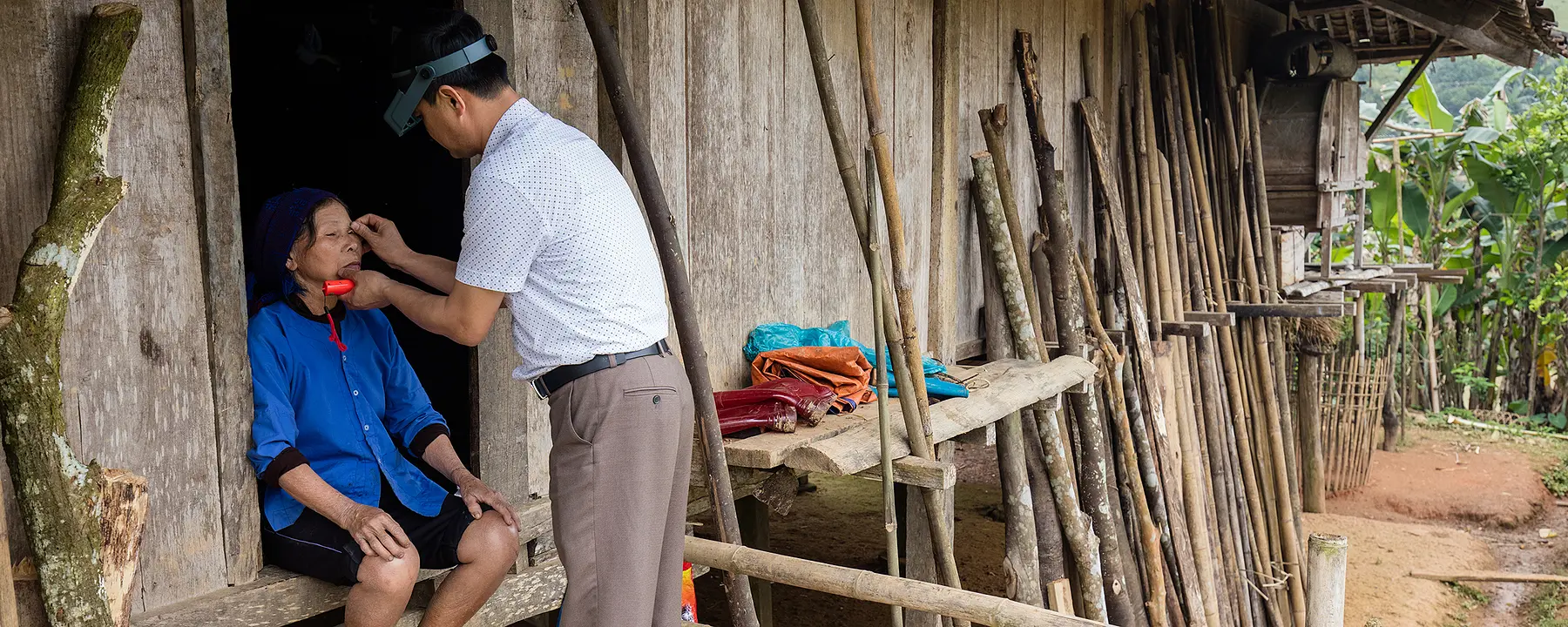Controlling and Eliminating Neglected Tropical Diseases Around the World
Neglected tropical diseases (NTDs) affect more than 1.7 billion people worldwide, causing severe disability, stigma, and pain. RTI International is a global leader in delivering successful, integrated, cost effective, and sustainable programming to control and eliminate NTDs.
Fortunately, five of the most prevalent NTDs—lymphatic filariasis, trachoma, onchocerciasis, schistosomiasis, and soil-transmitted helminth infections—can be targeted through the administration of safe, effective medicines to entire populations. Treatment of communities at-risk for these diseases for multiple years, alongside health systems strengthening efforts, can lead to the sustainable control and elimination of NTDs.
Over more than 15 years, remarkable progress has been made against these diseases, thanks to a coordinated global effort led by the World Health Organization (WHO) and ministries of health, with unprecedented support from pharmaceutical companies and bilateral donors such as the U.S. Agency for International Development (USAID).
USAID’s Act to End Neglected Tropical Diseases | East program (2018-2026), led by RTI, builds on these successes, supporting national governments to reach their NTD goals through proven, cost-effective public health interventions. The Act to End NTDs | East program provides critical support to governments to create sustainable platforms for NTD services within robust and resilient health systems.
The program has supported government-led NTD efforts in Bangladesh, Democratic Republic of the Congo, Ethiopia, Haiti, Indonesia, Lao PDR, Mozambique, Nepal, Nigeria, Philippines, Tanzania, Uganda, and Viet Nam.
Eliminating Diseases in Must Reach Communities
Act to End NTDs | East partners with governments to eliminate lymphatic filariasis, trachoma, and onchocerciasis as public health threats. As more countries make their final push to eliminate NTDs, our efforts must ensure that NTD services are reaching all those who need them, including those historically missed with health services, often in the some of the geographically hardest to reach communities. Act to End NTDs | East supports countries in reaching their populations with treatment, conducting surveys to assess impact, and helping countries complete the World Health Organization’s certification process, which confirms the successful elimination of these diseases.
Strengthening Health Systems’ Ability to Sustain NTD Progress
Through Act to End NTDs | East, we are working with governments and partners to promote and build capacity for sustainable NTD services, with a focus on national policy, planning, and financing processes. To do so, the program provides technical support for policy planning and governance, domestic resource mobilization, and cross-sectoral coordination. Act | East supported government-led efforts in Ethiopia, Uganda, and Tanzania to develop and launch NTD sustainability plans, setting ambitious goals to ensure NTD services are sustained into the future.
Influencing Global Health Policy, Research, and Practice
The global reach of Act to End NTDs | East allows us a breadth of experience and learning that are essential to inform and influence global NTD policy and practice. Act | East acts as a catalyst in the global policy arena by elevating learned experiences and detailing the challenges faced by health ministries, highlighting the gaps in global guidelines, tools, and funding. Our team has had a significant role in developing global and national guidelines and policy documents for more than 15 years. Our experts are core members of NTD consultative committees, advising on key issues relevant to achieving the WHO NTD Roadmap for 2030.
- U.S. Agency for International Development
- The Carter Center
- Fred Hollows Foundation
- Light for the World
- Results for Development
- Save the Children
- Sightsavers
- and WI-HER



















